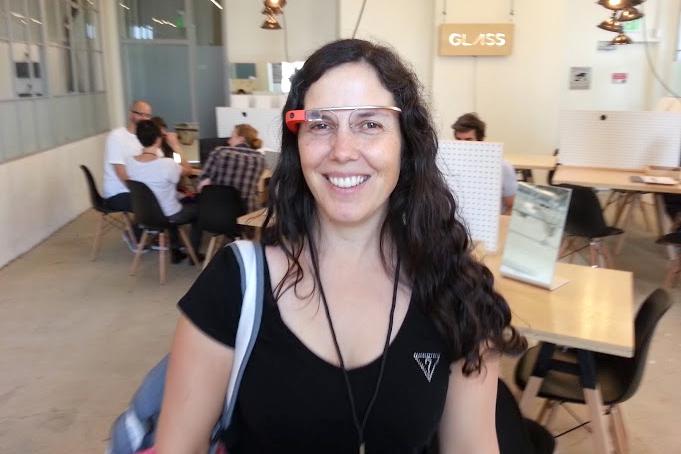
You may remember Cecilia Abadie. She was the California woman who hit the headlines in October after apparently becoming the first person ever to get a ticket for wearing Google Glass while driving.
The case came to court Tuesday, with the 44-year-old software developer pleading not guilty to charges of speeding, and distracted driving while wearing Google’s face-based computer. A trial has been set for January.
Though Glass isn’t on the market yet, Abadie (pictured above) has been trying out the device along with other testers as part of Google’s long-running Explorer program.
Indeed, she was wearing Glass a couple of months back when the traffic cop pulled her over on a San Diego freeway on suspicion of traveling at 80 mph in a 65-mph zone. Besides the speeding ticket, the officer also ticketed her for violating Vehicle Code 27602, which states that a car should not be driven “if a television receiver, a video monitor, or a television or video screen” is visible to the person behind the wheel.
According to Abadie’s attorney, William Concidine, his defendant will argue that although she was wearing Google’s device, it wasn’t operating while she was driving. Abadie will reportedly testify that the device only activated once she looked up at the cop who was standing by the door to her car. Presumably she’ll have an opportunity to show the court that Glass can indeed be activated with a head tilt.
Concidine also said he intends to tell the court that Code 27602 isn’t relevant to Abadie’s case because it came into existence before Glass was even invented. Likewise, her supporters claim the law is in place merely to stop drivers from watching TV while driving and has little to do with gadgets like Glass.
Glass laws
The publicity surrounding the case may serve to speed up reviews of similar laws in other US states in an effort to determine how they may or may not be adapted to clarify possible disputes that could arise in situations similar to Abadie’s.
Three states – Delaware, New Jersey, and West Virginia – are already in the process of passing laws that will ban drivers from wearing Glass while in control of a vehicle.
Further afield, the UK’s Department for Transport has also signaled its intention to ban the wearing of Glass while driving in the belief that like mobile phones, which are already prohibited, Google’s high-tech eyewear could be too much of a distraction for those in control of a moving vehicle.
DT’s mobile expert Jeffrey Van Camp believes quite the opposite, however, arguing that Glass could actually be a boon for drivers, helping to make journeys more efficient and ultimately safer for all road users. Check out his piece here.


